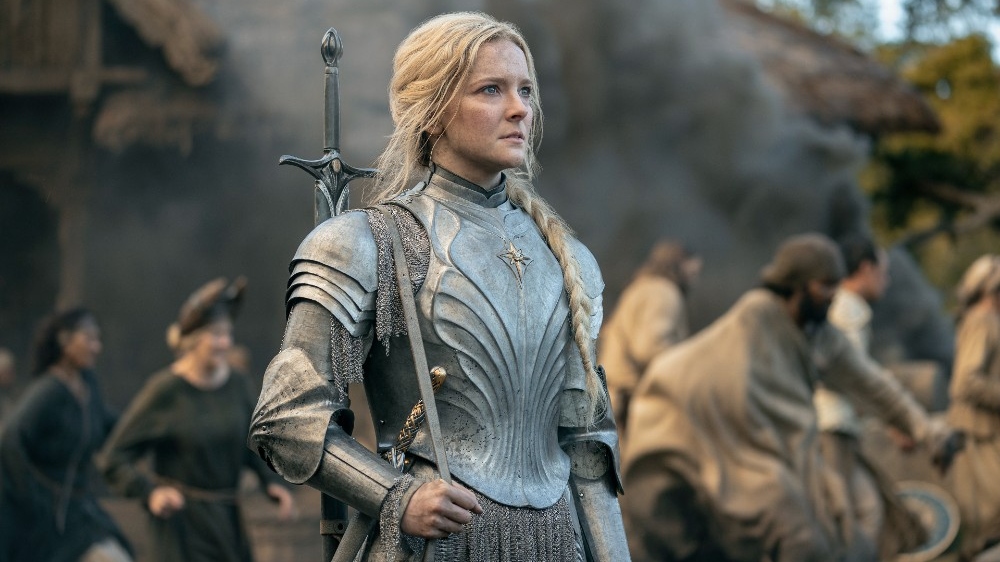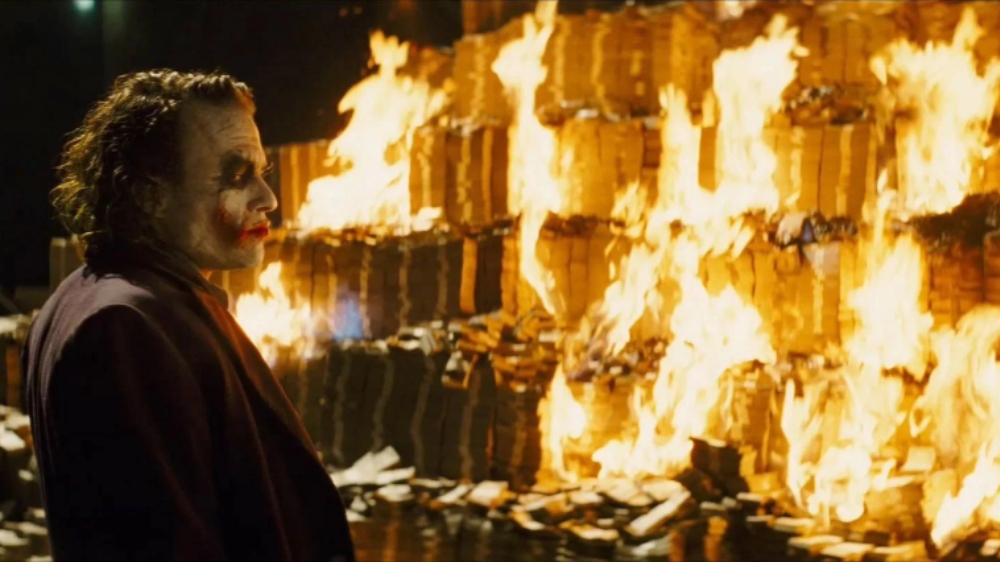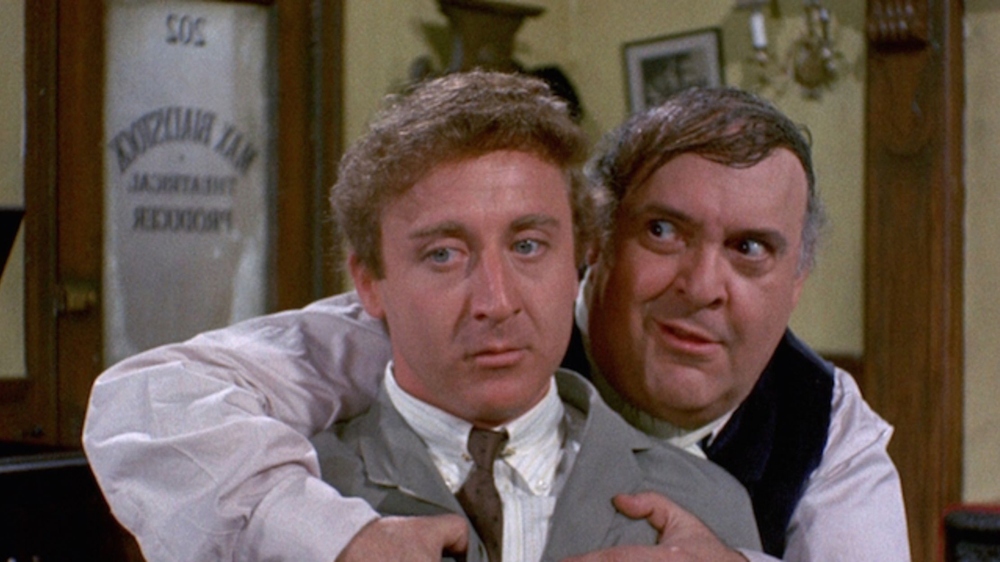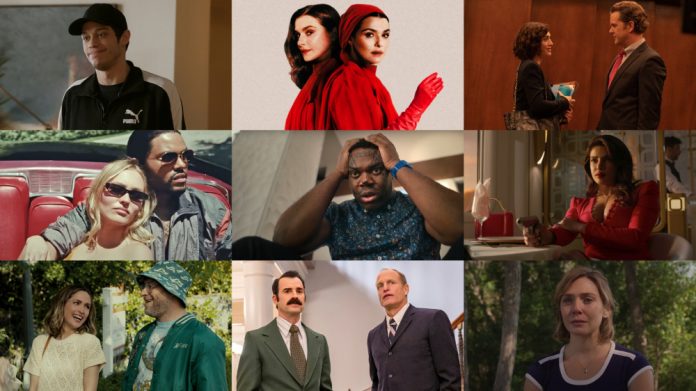There’s this convention every year in Cannes, right before the famous film festival, called MIPTV. It’s an international television market that draws execs and producers from all over the world. I’ve never been, myself, but I have friends who have attended, and apparently, it’s a pretty good time — parties, panel discussions, all that kind of stuff. Much of it is fun and interesting, some of it less so.
Lately, with increased demand for content from the myriad of international networks and streaming services, each one with deeper pockets than the next, the marketplace has been particularly hopping. The thing about a streaming service is that, unlike a broadcast network or cable outlet, it has an unlimited number of hours to fill, with the intent being to keep viewers on that service for as long as humanly possible, if not forever. Thus, there exists a constant need for more series, more movies, and more content — of any kind, really — in order to keep those eyes glued to that service and only that service.
This year, though, the MIPTV gathering has a slightly different tone. There is less celebration of how streamers are making it rain, and more complaining about how “the TV bubble has burst,” because the big bucks are no longer flowing like the runoff from a melting glacier.

But when you take a step back and look at the bigger picture, that doesn’t exactly ring true. While it’s fair to say that giant budgeted epics are no longer in vogue — with notable exceptions like Amazon’s Lord of the Rings series The Rings of Power, which apparently cost roughly $58 million per episode — that doesn’t mean the spigot has been entirely turned off. There are more streaming services than ever, which means a greater need for content, which means more productions, and therefore, the “bubble,” as it were, is still very much intact.
What the execs are talking about, more specifically, is that they’re not making as much money as they used to, likely because budgets are increasing and the money that the streamers used to bestow so freely isn’t quite as free anymore. Over the last few years, the average cost of an hour of television in the UK, just to use one example, has risen from $1.86 million to $3.1 million. I’m no math whiz, but even I can tell that’s close to double. I wrote about this a few weeks ago when I talked about the WGA-AMPTP negotiations and how costs were rising but writers’ salaries were not.
That remains true, and I’ll get into that a bit more below, but what’s interesting about this is how the executives and producers who make television are dealing with the same issue. There are two aspects to this, the first being the obvious one — that being how to finance projects without the open wallets that the streamers only recently closed. They’re focusing much more on the indie film model, with multiple financing sources and the use of a broadcast or streaming platform to leverage equity and international sales. It’s a pretty standard way to do business in the indie world, and TV makers have found that it might just be an effective model for themselves, as well.
The second aspect is a little more subtle, and that relates to how they’re crying poverty and making it clear how difficult it is to finance the creation of content, thus subliminally putting across the notion that anyone who does get any kind of greenlight for their material should be happy that it’s in motion and not only not ask too many questions about it, but also be prepared to take less money since there’s so much less to go around and it’s so hard to find nowadays.

But while you’re doing that, please ignore the fact that the average price for an hour of television has risen almost 100 percent, and literally none of that increase is going into your pocket. Can you do all that? Because it would be greatly appreciated.
Never mind that the idea of, you know, lowering costs doesn’t factor in, because that would mean less money for everyone else, and we can’t have that — especially if it’s coming out of the pockets of the producers and executives.
The truth of the matter is that there is, in fact, more TV than ever. You should see the number of shows I have on my “watch list.” Every time I scratch one off, two more seem to appear, like a Hydra of entertainment.
HBO has Succession, Barry and Perry Mason, with Watergate tale The White House Plumbers and the already-controversial drama The Idol on the way, and the Elizabeth Olsen-led true crime miniseries Love & Death soon to make its debut on sibling streamer Max. Meanwhile, Amazon has the buzzy thriller Swarm, a gender-flipped remake of Dead Ringers starring Rachel Weisz, and the upcoming big-budget action series Citadel from the Russo brothers. Elsewhere, Apple TV+ has Season 3 of Ted Lasso and soon, High Desert (Patricia Arquette), Platonic (Seth Rogen and Rose Byrne), The Crowded Room (Tom Holland), and Season 2 of The Afterparty, while Paramount+ has a series remake of Fatal Attraction and Disney+ has Marvel’s Secret Invasion on the horizon. Even Peacock is getting in on the action with its Pete Davidson series Bupkis co-starring acting greats Edie Falco and Joe Pesci. That’s… a lot of TV shows to watch over the next couple of months. And that’s without Netflix.
With that in mind, it’s fair to take it further and acknowledge something else — just because the money isn’t the same for most shows in production doesn’t mean that this so-called bubble is a problem, let alone in danger. I would argue that there is no bubble at all, in fact, and that it’s much more a creation of executives who suddenly have to work a little harder to get their content made. The money is out there because the money is always out there since there is a neverending supply of people and businesses who want to get involved in entertainment in order to potentially hit the Hollywood lottery and make a mint. The trick is in finding them.

I personally know several indie producers who have made their living for years finding the exact kind of money these execs are concerned about. Trust me, it’s out there, and these TV executives and producers will find it because their jobs sort of depend on it now — especially since they won’t spend their own money, though they might have to do just that going forward. Such a move would actually give them more skin in the game, which is never a bad thing… just a risky one.
But what concerns me is how this continues to affect those who are actually, you know, creating the content these people are financing. The execs and producers complain about how hard their jobs have suddenly become while actively trying to limit what they spend on the creative side. There’s all this need for new shows, and yet writers rooms are smaller, seasons are shorter, and the money pool for writers is shrinking instead of growing.
It’s easy to get up in front of a convention hall of colleagues and moan about how difficult your jobs have become, especially when you know it’s going to be picked up by the entertainment press (who are underpaid themselves) and your side of things will gain more traction.
Trickier is when the rubber hits the road and the reality sets in that you still need the people you don’t want to pay, and it becomes clear that this flawed buzzword has become an excuse to not pay them.
There’s an old saying, “Don’t piss on my leg and tell me it’s raining.” This whole “burst bubble” thing? It really sounds a lot like that if you ask me.
 Neil Turitz is a journalist, essayist, author, and filmmaker who has worked in and written about Hollywood for more than 25 years, though he has never lived there. These days, he splits his time between New York City and the Berkshires. He’s not on Twitter, but you can find him on Instagram @6wordreviews.
Neil Turitz is a journalist, essayist, author, and filmmaker who has worked in and written about Hollywood for more than 25 years, though he has never lived there. These days, he splits his time between New York City and the Berkshires. He’s not on Twitter, but you can find him on Instagram @6wordreviews.
You can read a new installation of The Accidental Turitz every Wednesday, and all previous columns can be found here.



